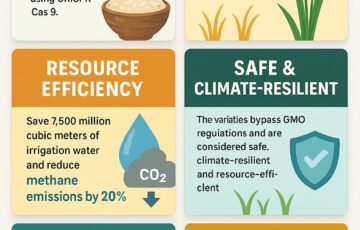Supreme Court Upholds Free Speech, Quashes Hate Speech Case
Why in the News?
The Supreme Court of India quashed a criminal case against Congress MP Imran Pratapgadhi for a poem, reaffirming that artistic expression is vital to free speech and cannot be curbed merely due to majority disapproval.
SC Quashes Case Against Imran Pratapgadhi:
- The Supreme Court of India quashed a criminal case against Congress MP Imran Pratapgadhi accused of inciting discord through a poem on injustice.
- The case was registered by Gujarat Police under Section 196 of the Bharatiya Nyaya Sanhita.
- The Bench of Justices A.S. Oka and Ujjal Bhuyan emphasized that a mere recital of a poem, satire, or stand-up comedy cannot be grounds for criminal action.
- The judgment reaffirmed the importance of free speech in a democratic society and cautioned against stifling legitimate expressions.
Reasonable Restrictions on Free Speech
- Justice Bhuyan clarified that restrictions on free speech must be reasonable, non-oppressive, and balanced.
- The court ruled that law enforcement and judiciary must assess complaints with a strong, courageous, and reasonable mindset rather than being overly sensitive to opposing views.
- Justice Oka stressed that the State and police should not misuse their authority to victimise individual opinions.
- The court noted that criticism and dissent are essential for a healthy democracy and should not be viewed as threats.
Artistic Expression and Free Speech
- Justice Oka remarked that poetry, art, and satire are integral to freedom of expression and must be protected.
- The judgment highlighted the role of art in voicing dissent and criticized the tendency to stifle artistic freedom.
- The court emphasized that freedom of speech cannot be suppressed simply because the majority dislikes the viewpoint.
- The verdict reinforces constitutional values of free speech and expression in a vibrant democracy.
Understanding Hate Speech and Legal Provisions in India:● Definition and Dangers of Hate Speech: ○ Advocates, incites, or promotes hatred, violence, and discrimination. ○ Threatens democracy, human rights, and rule of law. ○ Can escalate into violence and hate crimes if unchecked. ● Article 19 and Restrictions on Free Speech: ○ Guarantees freedom of speech but allows restrictions on grounds like security, public order, and decency. ○ Provisions under Article 19(2)-(6) permit state-imposed restrictions. ● Legal Provisions Against Hate Speech: ○ Indian Penal Code (IPC): Sections 153A and 505 penalize promoting enmity and public mischief. ○ Representation of People Act, 1951: Disqualifies candidates convicted for misuse of speech. ○ Protection of Civil Rights Act, 1955: Section 7 penalizes incitement to untouchability. ○ Religious Institutions Act, 1988: Prohibits hate propagation in religious places. ● Important Judgments: ○ Pravasi Bhalai Sangathan v. Union of India: Enforcing existing laws can address hate speech. ○ Jafar Imam Naqvi v. Election Commission of India: Rejected PIL against hate speeches during elections. |






